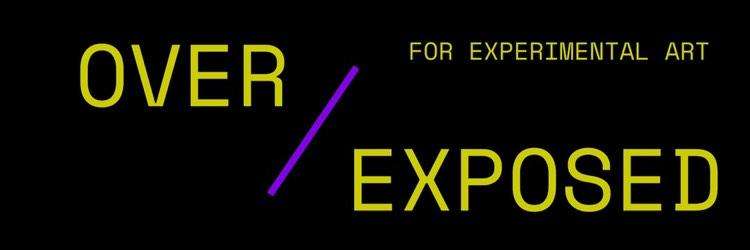Submissions for the first issue of OVER/EXPOSED are open

Promo image provided by @over_xposed.lit on Instagram.
OVER/EXPOSED is a new fully digital literary journal focusing on experimental work, the first of its kind at UVic. Submissions opened on March 15, and the first issue is planned to release sometime over the summer.
Visit the magazine’s eye-catching website, and you’ll be welcomed by these guidelines: “OVER/EXPOSED accepts poetry, prose, multimedia, visual art submissions, and reviews. We are looking for off-kilter, electric, genre-bending art that stays with us like an afterimage. Our tastes are eclectic, and we have a special interest in interactive media and experimental works.”
The publication is primarily a grad student project, giving priority to the work of fellow grad students. That being said, undergrads should not be afraid of submitting.
“We’re super excited and hopeful to get as many submissions as we can,” said Evelyn Ryan, the web designer for OVER/EXPOSED. “We’re hopeful for donations from donors so we can [give] back some of that money to our artists who get published. We’re really focused on getting that first issue out, and we’re hoping it reaches a large audience.”
Since the journal is completely online, the team is hoping to publish different forms of media that wouldn’t be possible in print. These include formats like HTML files, MP3s, MP4s, and projects made using Twine, a free online tool for creating interactive and choose-your-own-adventure stories.
The lack of physicality has also helped the OVER/EXPOSED team overcome the steep costs that come with printing a magazine. As a result, the publication will be free when it’s eventually released, allowing anyone to enjoy its content, though donations are still accepted.
“I think the biggest disadvantage I can see is it being another thing in an inbox, and people see it, and they’re like, ‘oh, I don’t need to read that right now,’” said Ryan.
Being a digital publication may have its benefits, but it also comes with its own set of challenges. According to Ryan, the biggest hurdle will be figuring out how to publish less traditional formats. Most work is submitted to journals as PDF or Doc files, but “with experimental work, it could really be anything.”
“There’s a challenge in setting our submission guidelines [for] what file types we accept, as well as preparing our website to be able to host various kinds of media,” said Ryan.
Starting a new publication like this is no small task, but that shouldn’t discourage anyone who has their own vision of creating something similar.
“You need to build everything from scratch, and you need to make a reputation from scratch,” said Ryan. “There’s been a lot of networking with people as well as getting our name out there in various ways, such as social media.”
OVER/EXPOSED can be found on Instagram and Twitter.
As the options for publication on campus expand, so do the possibilities and opportunities for creators. This Side of West, The Albatross, The Malahat Review, and The Warren are the established publications on campus, all catering to slightly different styles and audiences. The Warren is the most experimental of these publications, but even it is limited by its physicality.
“I think the biggest difference between OVER/EXPOSED and The Warren is that we’re focused on graduate students, as well as the focus on alternative mediums.”
Ryan says that the OVER/EXPOSED team was inspired by other experimental publications such as The Ex-Puritan.
If you or anyone you know has a project that may have been shelved due to it being a little too out there for traditional paper publications, now might be the time to dust it off. As technology advances, so do the opportunities for newer and more experimental work to be shared.







